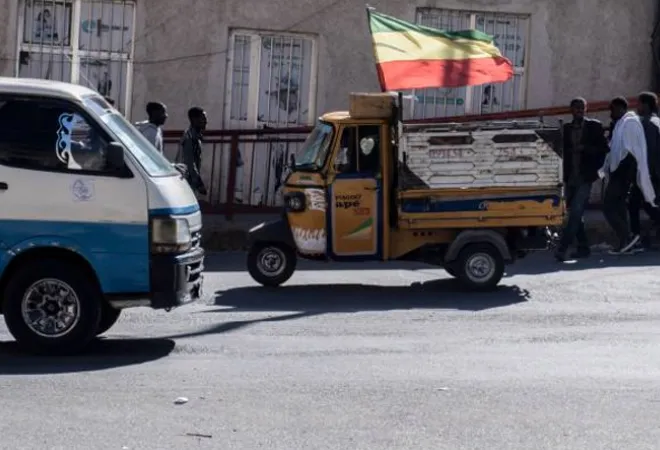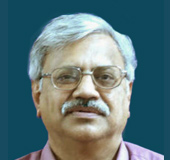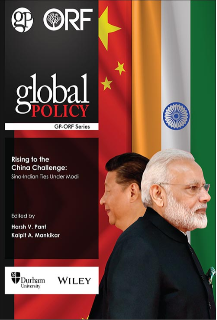
The civil war in Ethiopia between the Tigray region and the federal government led by Prime Minister Abiy Ahmed has lasted for a little over one year, and possibilities of ending it through dialogue between the contending parties still appear bleak. The Ethiopian Defence Forces, Eritrean Defence Forces, Amhara Special Force and allied militia on one side and the Tigray Defence Forces (TDF) of the Tigray People’s Liberation Front (TPLF) and Oromo Liberation Army (OLA) on the other side have been engaged in a pitched battle. After capturing the whole of Tigray, the TPLF launched an offensive in Amhara and Afar region and began their march towards Addis Ababa, the capital. The TPLF had claimed to have captured Dessie and the town of
Kombolcha from the Amhara region. Its forces came close to roughly 380 kilometres from the capital. In view of this, Abiy Ahmed had declared a
state of emergency in Ethiopia in early November 2021. While leading the battle from the front, Abiy Ahmed exercised the option of conscription, invited youth and
citizens to take up arms and sought the cooperation of retired army personnel in an effort to save the unity and integrity of Ethiopia. Further, in the beginning of December 2021, in a dramatic turn of events, Abiy Ahmed has been able to get arms from
Turkey, Iran and the United Arab Emirates (UAE), which has reportedly reversed the gains of the TPLF although the TPLF views their retreat as territorial adjustment.
The TPLF had claimed to have captured Dessie and the town of Kombolcha from the Amhara region. Its forces came close to roughly 380 kilometres from the capital.
However, owing to the bloody civil war, thousands of lives have been lost, at least
two million people have been rendered homeless and some have been compelled to
take refuge in neighbouring Sudan. The region of Tigray has faced mass starvation deaths due to high-handed policies of the federal government. Out of the roughly 7 million people that inhabit the northern parts,
400,000 people are facing famine like conditions, while for
80 percent of the people essential medication is not available. Besides,
atrocities, including sexual assaults, are being committed on the targeted Tigray population. To put it simply, factors such as humanitarian crises coupled with gross violation of human rights of the dissenters has plunged an erstwhile politically stable Ethiopia into a quagmire.
As the second largest populated country in Africa after Nigeria, with a population of roughly
110 million, Ethiopia has over
90 ethnic groups and 80 languages. Since 1994, Prime Minister Meles Zenawi adopted the system of ethnic federalism that organised Ethiopia into 10
ethno-linguistic states and two chartered cities which, as argued by
David Ottaway, has led to dire consequences. The seeds of this current political instability in Ethiopia could be traced to the assertion of the Tigray ethnic group to restore its erstwhile dominant position in the Ethiopian polity as well as society.
Abiy Ahmed and his policies
Earlier, the
Ethiopian People’s Revolutionary Democratic Front (EPRDF), a four party coalition, led primarily by the Tigray ethnic group, had successfully overthrown the Marxist-Leninist regime of
Mengistu Haile Marriam in 1991. Although the Oromo and Amhara ethnic groups together constitute 60 percent of the total Ethiopian population, it is the Tigray people—who account for merely
six to seven percent of the population—who controlled the levers of power in the Ethiopian state from 1991 to 2018. Abiy Ahmed also belonged to EPRDF and was the third chairman of the EPRDF, but he moved on to establish his Prosperity Party (PP) in 2019. Abiy Ahmed is
Oromo with mixed parentage involving a Muslim father and a Christian mother. Thanks to his cosmopolitan background, he was perceived to be an ideal candidate to negotiate with multiple religious, regional and linguistic diversities in Ethiopia to manage the federal structure of the polity.
Abiy Ahmed initiated progressive steps as he reversed the EPRDF’s repressive policies by decriminalising opposition parties, releasing political prisoners and penalising corrupt officials.
On assuming office in 2018, Abiy Ahmed initiated
progressive steps as he reversed the EPRDF’s repressive policies by decriminalising opposition parties, releasing political prisoners and penalising corrupt officials. He was also trying to bring about reforms in the army by inducting officers loyal to him, which was opposed by the Tigray ethnic group. Strangely, compared to their total population, within the Ethiopian army, the Tigray ethnic group had as large as
18 percent army personnel, including a large proportion of army officers. Besides, Abiy Ahmed’s foreign policy also appeared promising in the initial days. Although during 1998-2000, Ethiopia had witnessed a war with Eritrea, Abiy Ahmed successfully befriended a traditionally hostile neighbour like Eritrea and had won the
Nobel Peace Prize in 2019. He also began to forge ties with the Arab countries such as Saudi Arabia, the UAE and Qatar to promote development cooperation. What is more, the PP led by him registered a
landslide victory in general elections concluded in July 2021 although the course of elections was marred by
violence in the Tigray region and Opposition boycott. In essence, Abiy Ahmed has singularly failed in handling the rebel groups from Tigray and with the passage of time, the scope of the civil war has only compounded and widened.
Factors that led to civil war
At the heart of the current crisis in Ethiopia, there is an ongoing tension in the relationship between the centre and the regional state units. The regions like Tigray zealously aspire to guard their autonomy, as they demonstrated by organising elections to the
regional parliament in September 2020, in spite of the centre’s orders to keep elections on hold during the COVID-19 crisis. Moreover, the army personnel of Tigray began to oppose the federal army. They then joined the TPLF and, in
November 2020, they launched a pre-emptive strike on the federal army base to steal weapons, which triggered a military confrontation between the Tigray and the federal government. The defiance of the Tigray region prompted the Abiy Ahmed regime to launch a full-scale attack on Tigray and commit atrocities on the people of the region leading to violation of human rights. Unlike the Tigray people’s quest to preserve their autonomy, Abiy Ahmed has aimed at running Ethiopia with a strong
centralised federal government by suppressing the regional autonomy and/or dissent. His regime declared the
TPLF as a terrorist outfit. It needs to be underscored that the civil wars in large sized African states with diverse populations such as Nigeria or Sudan have always arrested a wider attention in world politics and Ethiopia is no exception to this rule.
In fact, Ethiopia has not merely been among the significant powers within the continent but it is a crucial lynchpin in the strategically located region of the Horn of Africa. It has been a stable ally of the US over the past few decades. Up until Eritrea seceded from Ethiopia in 1993, Ethiopia had a long coastline. However, at this juncture, it is a landlocked state with six important African neighbours. Since the political instability in Ethiopia, aggravated by the protracted civil war, will inevitably have a spillover effect in the countries of the Horn of Africa, the developments in Ethiopia are being seriously noted by regional and international organisations on the one hand and major world/regional powers on the other. For instance, the
African Union’s (AU) peace initiatives in Ethiopia are being supported by the United Nations Security Council (UNSC). Besides, the
UN Political Chief, namely, Rosemary DiCarlo, has underscored the dangers of compounding civil war and its impact. The
UNSC has called for an end of fighting. Also, the AU Commission Chair together with Intergovernmental Authority on Development’s (IGAD) executive secretary, President
Uhuru Kenyatta of Kenya, have appealed for immediate cessation of hostilities.
Furthermore, with the intensification of the civil war, western countries such as
France,
Canada and the
US have opted to evacuate their citizens, especially families of embassy staff and other non essential personnel from Ethiopia. The US secretary of state, Anthony Blinken, on his visit to Kenya, not merely discussed the civil war in Ethiopia but went ahead to
suspend duty free access to Ethiopian exports. The US held that due to
gross violation of human rights, Ethiopia had ceased to meet the eligibility requirement of the
African Growth and Opportunities Act. Ostensibly, it appears as if international pressure is building up to end the civil war. However, the civil war has to be viewed from the standpoint of policy options that are available to the Abiy Ahmed regime.
What happens now?
To start with, till the Tigray civil war broke out, the US treated Ethiopia as its stable partner. The US has been the
biggest donor to Ethiopia and, according to Ambassador Jeffery Feltman, from 2016 to 2020 it
provided US $4.2 billion worth of aid as humanitarian assistance to Ethiopia. Ethiopia, in its turn, had also backed the US endeavours in its global war on terror. For instance, it supported the US to combat Islamic Terrorist outfits in Somalia that had led to the ouster/dissolution of Union of Islamic Courts,
a precursor of Al Shabab in 2006. At this stage, if the US influence declines in Ethiopia in particular, and in the politics of the Horn of Africa in general, China will be ready to fill up the power vacuum. China is already a major player in the Horn of Africa. With the December 2021 visit of the Chinese Foreign Minister,
Wang Yi, to Ethiopia, China has already entered the civil war by siding with the Abiy Ahmed regime. Ostensibly, China follows a policy of non-interference in the internal affairs of any country but China is
likely to supply weapons and bear the military expenditure of the Ethiopian government. What is more, Ethiopia has borrowed US
$13.7 billion from the year 2000 to 2019 from Chinese lenders. Apart from its growing stakes in the Western Indian Ocean region, China is continuously expanding its maritime interests in the Red Sea and the Horn of Africa. It already has a military base in Djibouti and cordial trade, commercial and military ties with countries such as Kenya, Sudan and South Sudan. Furthermore, Ethiopia is engaged in building the
Grand Ethiopian Renaissance Dam over the Blue Nile river where it has come in conflict with its immediate neighbours such as Egypt and Sudan. Egypt is Turkey’s rival in North African/West Asian politics and Turkey is expanding its interests in Africa through sale of arms. For instance,
Turkish drones are being deployed by the Abiy Ahmed regime to supress the Tigray rebellion.
Ostensibly, China follows a policy of non-interference in the internal affairs of any country but China is likely to supply weapons and bear the military expenditure of the Ethiopian government.
To conclude, domestically, the civil war has had an adverse impact on Ethiopian polity, economy and society. Handling a complex multi-ethnic country through federal arrangements has created a rift between the centralising tendencies of the current regime and the demand to protect regional autonomy on the part of regions like Tigray. In the process, major regional/international organisations as well as world/regional powers have gotten entangled in the Ethiopian imbroglio. Thus, the AU or the UN ritually appeal for cessation of hostilities while major global powers such as the US, China, or regional powers such as Iran, UAE, Saudi Arabia and Turkey continue to push their own strategic interests in the region. In the midst of this, satisfactory resolution of the civil war still appears like a distant dream.
The views expressed above belong to the author(s). ORF research and analyses now available on Telegram! Click here to access our curated content — blogs, longforms and interviews.



 The civil war in Ethiopia between the Tigray region and the federal government led by Prime Minister Abiy Ahmed has lasted for a little over one year, and possibilities of ending it through dialogue between the contending parties still appear bleak. The Ethiopian Defence Forces, Eritrean Defence Forces, Amhara Special Force and allied militia on one side and the Tigray Defence Forces (TDF) of the Tigray People’s Liberation Front (TPLF) and Oromo Liberation Army (OLA) on the other side have been engaged in a pitched battle. After capturing the whole of Tigray, the TPLF launched an offensive in Amhara and Afar region and began their march towards Addis Ababa, the capital. The TPLF had claimed to have captured Dessie and the town of
The civil war in Ethiopia between the Tigray region and the federal government led by Prime Minister Abiy Ahmed has lasted for a little over one year, and possibilities of ending it through dialogue between the contending parties still appear bleak. The Ethiopian Defence Forces, Eritrean Defence Forces, Amhara Special Force and allied militia on one side and the Tigray Defence Forces (TDF) of the Tigray People’s Liberation Front (TPLF) and Oromo Liberation Army (OLA) on the other side have been engaged in a pitched battle. After capturing the whole of Tigray, the TPLF launched an offensive in Amhara and Afar region and began their march towards Addis Ababa, the capital. The TPLF had claimed to have captured Dessie and the town of  PREV
PREV


